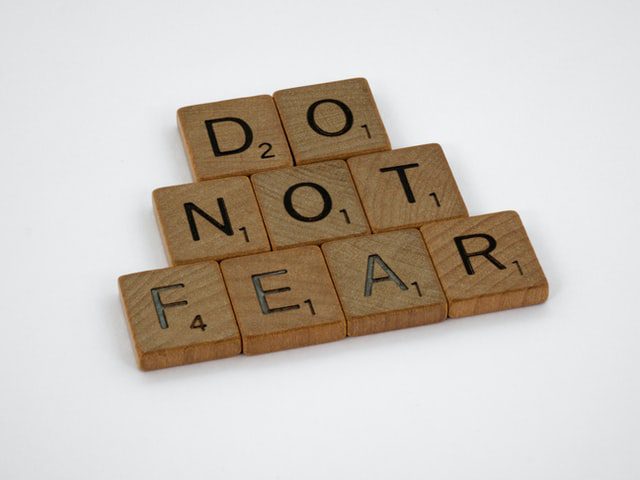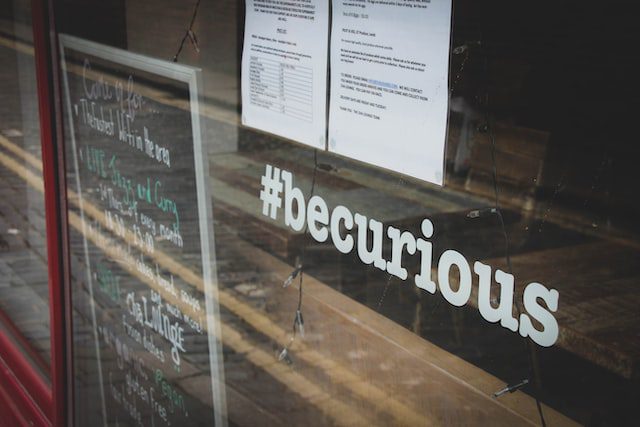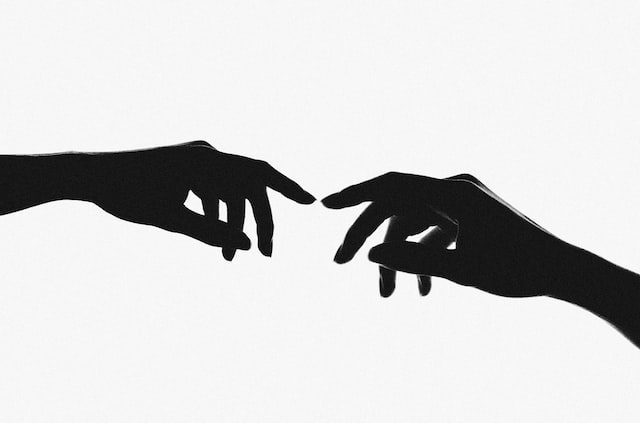
I recently sat down with Jim Babka for an interview for the Recorded Conversations podcast. While researching his work, I came across one of his blogs on the DownsizeDC website. What he had written about human nature jarred me. Jim wrote, “Human nature is a real hurdle. Two points are key. Human beings aren’t motivated by good news and progress. Most people are motivated by hate, fear, conflict, and drama.”
Babka used this as an example to demonstrate this idea; “This is why Republican organizations raise more money after Republicans lose power, and Democratic organizations raise more money when Democrats are out of power. This is also why left-leaning TV channels had huge ratings when Trump was president, but their ratings have plummeted since Biden was elected. You might think it would be the opposite. You would think that Democrats would be energized, motivated, and ACTIVE because their team won the election. But what we see instead is increasing apathy on the Left. That’s because it’s really all about hate, fear, conflict, and drama! The Democrats loved hating Trump more than they loved progressive policy aims. Now, the Republicans love hating on Biden more than they ever loved pushing conservative legislative goals.”
Is this true? Are most humans motivated by hate, fear, conflict, and drama? Are people uninterested in activism and causes unless their reptilian brains are activated? Are we so robotically programmed that we only respond to the calls of conviction if it offends the ego?
Let’s look at Christianity for a moment to sort this idea out. Back when I was entrenched in Evangelicalism, the motivating catalyst to be a “good Christian” was often the threat of an eternal hell awaiting me if I wasn’t. Such a program came from pulpits by over-zealous pastors worried about the condition of the individual human soul. The program instilled was meant to offer salvation to the sinner. Be good, and God won’t send you to hell. Repent! And God won’t send you to hell. Was it an effective motivator to be “good”? You’re damn right it was. So good, in fact, that while I was drowning in this phase of Evangelicalism, I was so scared of an eternity of hell, that I demanded my daughter reject her bisexual orientation to save her soul.
Religion isn’t the only dimension of life that demonstrates how effective fear is. If we turn to a more scientific dimension, particularly psychology, we can see that time and time again, fear is the most powerful motivator known to humans. In fact, it’s a primal instinct that served humanity well during cave-dwelling days. Fear invokes the fight or flight system and our initial reaction to such stimulation is to flee and hide in our comfort zones.
Advertisers and marketers use fear to sell products and services. They often present scenarios aimed at invoking our sense of fear. Their product or service is then presented as the solution to the fear. But it’s not just fear that they use to sell their products and services. Hate, conflict, and drama are also marketable expressions. Do you hate Donald Trump? Buy this product to stick it to him. Do you hate Joe Biden? Hang this flag to show others where you stand.
Politicians and media conglomerates also utilize hate, fear, conflict, and drama to grab your attention. Scary scenarios are depicted and presented to you to get your vote or to get you to tune in to the next segment. These two groups often present you with a villain/hero scenario. They tell you who the villain is—it could be Donald Trump, Joe Rogan, Jordan Peterson, Candice Owens, Dr. Malone, or Dr. McCullough, for instance. Clever mischaracterizations are presented about these “villains” along with imaginative scenarios that could very well threaten your individual existence if you don’t do something to stop this villain.
There is good news! They also tell you who the hero could be, Joe Biden, Rachel Maddow, Dr. Fauci, for example. In the political sphere, it’s typically a bill that will save you and all of humanity. (Take for instance, the Green Deal or the Build Back Better bills.) Or it could be you! You could be the hero by taking to Twitter or Facebook and sharing an article or soundbite that invoked your fear and hatred in the first place. And the amazing result is that you have taken on the responsibility to perpetuate that hate and fear. But you did it to protect yourself from the impending threat that these sinister villains could impose!
Was that seed of fear planted by advertisers, marketers, media, and politicians? Not at all. That fear was already rooted in your childhood experiences. And it is such a strong driver of our behavior that it forms the basis for everything else that motivates us in life.
David Richo, the author of When Love Meets Fear, says, “When we notice a connection between our present fears and their origins in early life, we are finding out how much of our identity is designed by fear.”
In the primal days of early civilization, fear was an important tool of the psyche that kept us alive. But, as my guest Jim Babka pointed out during the podcast recording, we don’t have a use for this state of fear anymore. There isn’t a possibility that some predator is lurking outside your cave waiting to eat you while you hunt for food for your family.
Even so, most people will still operate out of the fear frequency. This is because most people are operating from the unconscious level of their psyche rather than utilizing the most prestigious advancement of consciousness: self-awareness.
Advertisers, marketers, media commentators, politicians, and even public-school educators won’t bring this to your attention. Why? Teaching individuals about the power of awareness would be detrimental to the pursuits of those systems. Step into authentic awareness and you might discover that you have been deceived by the very institutions that claim to have your best interest in mind. If you step into authentic awareness of the self, you can’t be easily targeted by mainstream manipulation or political propaganda.
What do you fear?
What it is exactly that people fear? Why do hatred, conflict, and drama draw us down to the fear frequency? Revisit your childhood. Ask yourself what scared you the most growing up. Was it the fear of rejection? The fear of not being good enough? Maybe you had an unstable childhood. Did you move around a lot? Maybe you had an abusive parent? Maybe you only had one parent. Maybe you had too many stepparents come in and out of your life? Maybe, one time while shopping at the grocery store, you were separated from your mom or dad. And as a child, you hated those experiences. They created chaos for you. You probably did everything in your limited cognitive power to avoid all conflicts that reminded you of those experiences. And everything thereafter was measured against this standard you unconsciously created for yourself.
Traumatic experiences from our past, which may range from minuscule to major, are absorbed into the psyche and archived in the memory. When emotions come to the surface that mirrors the emotions experienced from past events, the primitive brain is activated and the egoic demand for comfort and control takes over. Nothing invokes our inner trauma quicker than conflict and drama, and before we know it, fear and hatred are taking up space in the frontal lobe.
What is it that people are seeking to control? Mainly, the limbic reaction that creates the stir in the first place. Feelings come to the surface, the ego says, “FIX IT NOW!” And the way we fix it is by utilizing the same mechanisms that we used as children. The mechanisms we used as children were an effort to establish homeostasis. Essentially, we sought out ways to make ourselves feel safe and secure. Sometimes that was by hiding away, moving from the perceived danger toward something comforting and cozy. My go-to soothing agent was a security blanket. Today, it’s headphones and loud music—something I learned from my oldest daughter. We all have habits and practices that we use to control our environment in a way that we can hide from it, disassociate from it, or in many cases, confront it.
Some people revert to anger when their fears are present. When someone feels rejected, for instance, because they have shared their views and were met with disagreement, the reactive impulse is to protect their view by hurling accusation and insult to the dissenter. The thing is, we have incorrectly assumed that disagreement means something about who we are as an individual. If someone disagrees with my opinion about Joe Rogan, for instance, the societal messaging suggests that this is too much for my ego to bear and I must do something about the disagreement. I must reassert the power of my beliefs by taking power away from the opposing side.
But must we defend our beliefs at the expense of another? Is that what the Messiah taught? For those who believe the Bible is the go-to manual for life, one would be remiss to remind the readers of how many times throughout the Canon it is written, “Do not fear.” And yet fear is the greatest motivator? It seems to me that we are unapologetically advancing the most blatant contradiction of our beliefs when we allow fear to be the main frequency of our broadcasts and our behaviors.
What’s the remedy?
We must first separate ourselves from our beliefs in such a way that we don’t find offense in disagreement. How do we do this? We remind ourselves that our beliefs and the values that we hold are ours alone. Holding out an expectation that everyone thinks the same and acts the same is beyond ludicrous. It is an impossibility of epic proportions because we all live very individual, unique lives, and all have individual and unique experiences.
Jesus never used force to get his message across. Here, we should be quick to imitate his practice. You can’t bully someone into believing what you believe. You can’t threaten someone to think like you. You will merely push others away if you hold such a demand for others. And if your fears are rooted in abandonment and rejection from others, you’d be wise to seek out ways to invite people into your life rather than push them away.
The truth is, as Jesus showed us, you can only impact change through intimate connection, and most of those connections were established through the art of conversation. It was the people willing to ask questions and listen for more information that would ultimately have a change of mind about what Jesus was preaching. Conversations change the world. Of that, I am convinced. Jesus modeled this practice through and through.
We must also stop taking every disagreement with our opinions so personally. Most people are projecting in their reactions, anyway. Reactions don’t deliver intimate and vulnerable truths about another individual. Responses, however, that are predicated by genuine curiosity and a desire to fully understand where the other is coming from are the markers of potential change and reveal the intentions of another.
See, the thing is, we all have limited information. Meaning we are all ignorant to some degree. This idea that someone has all the answers is fantasy. What we do see present within today’s narratives are answers that cannot be questioned along with questions that cannot be asked. If you find yourself in an environment like that, remove yourself from it. People who cannot be questioned, ideas that are too fragile for scrutiny, and beliefs that demand allegiance and acceptance without comprehension or understanding all emanate from the same fear frequency.
If you are willing to consider, if only for a moment, that maybe, just maybe, I don’t have all the information, you might be more willing to consider the perspective of another. I realize that arguing and debating is seemingly entertaining ways of making your point, but these are not effective or conscious ways to connect to others and create real harmony for humanity. Disagreement does not need to lead to disconnection or division. We are not the sum total of the opinions we hold in our minds. There is no need to feel threatened by disagreement. It does not harm us, physically. Our property is not destroyed by disagreement. No one is stopping our pursuit of happiness by saying they don’t agree with you.
Keep all this in mind the next time you feel offended by disagreement. Look at all the instances in which Jesus was met with dissent and disagreement. He didn’t let the noise of nay-sayers become an obstacle to his pursuits. So, why should you?
Check out my interview with Jim Babka here.
Be sure to subscribe to the podcast, here, if you prefer to listen rather than watch.












